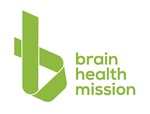Policy and advocacy
ECNP is committed to improving the lives of people living with a brain disease by promoting research into the prevention and treatment of diseases of the brain, mental and neurological alike.
A founding member of the European Brain Council, ECNP works with the EBC to advocate for policies and practices that increase support for research and that promote research, education and training.
Policy statement
ECNP recognises that brain health is essential to the overall health and well-being of individuals, families, communities and societies. Research into brain health and disease is a critical component of public health and requires adequate funding, resources, and attention from policymakers, healthcare providers and society at large.
ECNP supports evidence-based policies and practices that:
- Promote brain health and well-being through prevention, early intervention and education.
- Advance brain health research, including basic, clinical, and translational research, to improve our understanding of brain diseases, develop new treatments and preventative strategies to improve brain health.
- Address the social determinants of brain health, including poverty, discrimination, trauma, and other adverse experiences that disproportionately affect marginalised and underserved populations.
- Ensure that people with brain illnesses are treated with dignity, respect and equity, and that their rights are protected.
Advocacy Statement
ECNP recognises that achieving our policy goals requires advocacy at the local, national, European and international levels. We are committed to working with policymakers, healthcare providers, researchers, advocates and people with lived experience to promote brain health and well-being.
ECNP will advocate for policies and practices that:
- Increase funding for brain health research, education and training.
- Address the stigma and discrimination associated with brain illness and promote brain health literacy and awareness.
- Support policies and practices that reduce the social and economic determinants of brain diseases, including poverty, discrimination and trauma.
The European Brain Council
Brain health is a fundamental human right. For brain health to be valued, protected and supported, urgent attention and action are needed to address diseases of the brain and to understand the biological mechanisms that underly brain function in health and in disease.
The European Brain Council advocates for policies and practices that address the social and economic determinants of brain illness, promote brain health literacy and awareness, and reduce the stigma and discrimination associated with brain illness.
Along with its member network of scientific societies, patient organisations, professional associations and industry partners, the EBC advocates for new evidence-based solutions that tackle the global burden of brain disease.
By fostering co-operation between the key players in the ‘brain area’, the EBC provides a crucial platform for dialogue between scientists, industry and society, with the ultimate goal of improving the lives of the estimated 179 million Europeans living with brain conditions.
For more about the EBC, its work with stakeholders in the brain arena to raise awareness, advocate for patients, integrate Europe’s brain research agenda, and disseminate the latest data, analyses and discoveries, please see the EBC website.
The Brain Health Mission
ECNP is also a Strategic Partner of the Brain Health Mission.
 The Brain Health Mission is a collaboration between European scientific and medical associations which has been established to raise awareness about brain health and create opportunities for people to better understand the importance of preserving a healthy brain and nervous system, to diagnose, and to treat neurological and brain disorders from the earliest moment possible. Through its programmes and events the Mission aims to ensure a basic understanding of how to optimise brain health is available to the public, to support and disseminate impactful public health strategies, and to boost the workforces of healthcare professionals within neurology, as well as professionals dedicated to mental health, to ensure patients and those affected by brain disorders receive the care and support they need and deserve.
The Brain Health Mission is a collaboration between European scientific and medical associations which has been established to raise awareness about brain health and create opportunities for people to better understand the importance of preserving a healthy brain and nervous system, to diagnose, and to treat neurological and brain disorders from the earliest moment possible. Through its programmes and events the Mission aims to ensure a basic understanding of how to optimise brain health is available to the public, to support and disseminate impactful public health strategies, and to boost the workforces of healthcare professionals within neurology, as well as professionals dedicated to mental health, to ensure patients and those affected by brain disorders receive the care and support they need and deserve.